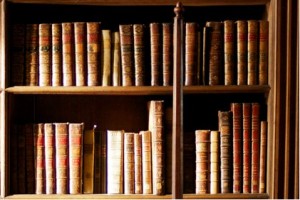 Austin, Texas, November 3-6, 2013
Austin, Texas, November 3-6, 2013
The 2013 Digital Library Federation (DLF) Forum is seeking proposals for presentations, panel discussions, workshops, research updates, and hands-on, problem-solving sessions. The Digital Library Federation is a robust and diverse community of practitioners who advance research, teaching, and learning through the application of digital library research, technology, and services. The Forum is a working meeting where DLF members come together to discover better methods of working through sharing and collaboration. It serves as a resource and catalyst for collaboration among digital library developers, project managers, and all who are invested in digital library issues.
Participation is open to all those interested in contributing to and playing an active part in the successful future of digital libraries, museums, and archives services and collections. In that spirit, and to maximize the Forum’s benefit and better facilitate the community’s work, the Forum’s schedule will provide many opportunities to actively engage and network.
For the 2013 DLF Forum, the Program Planning Committee is requesting proposals within the broad framework of digital collections and their effect on libraries, museums and archives services, infrastructure, resources, and organizational priorities. Proposals should strive to contribute to the following topics:
• Digital technology design
• Management and assessment
• Data
• Collaboration
We welcome proposals on these and other areas from current community members and non-members who are interested in joining the DLF community. For more detailed examples, please see the 2012 DLF Forum schedule: http://www.diglib.org/forums/2012forum/2012-dlf-forum-schedule/.
Session genres include:
• Presentations and Panels
Traditional lecture format with question-and-answer sessions. Speakers are requested to use only half of the allocated time for the presentation, including how they wish to engage the DLF c community in their work. The second half of the session should focus
on conversations about next steps, engagement with the community, and clarification of points raised during the presentation.
• Workshops
In-depth, hands-on training about a tool, technique, workflow, etc. You can recommend a topic or trainer, or you can volunteer to share your own expertise.
• Research Updates
An opportunity for those working in digital collections research to present their preliminary findings for community feedback and discussion.
• Working Sessions
Creative problem solvers, including project managers, developers, and/or administrators, gather to address a specific problem. This does not have to be a computational problem. The approach
can be applied to workflow issues, metadata transformations, or other complex problems that would benefit from a collective, dynamic solution approach.
• Community Idea Exchange
A modified poster session. Presenters will have the opportunity to interact with Forum participants to discuss their current research projects, and/or demonstrate tools or services they have
developed or are using in their digital library environment. Demos must include a poster element.
Proposal Submission Guidelines and Evaluation Procedures
Complete proposals should be submitted using the online submission form (http://www.diglib.org/forums/2013forum/proposals/) by 11:59 PM on June 28, 2013.
Proposals must include a title, session leader, session genre, proposal description (maximum 300 words), and proposal abstract (maximum 100 words).
After an initial review by the Program Planning Committee, all proposals will be posted on the DLF website for community polling. The community vote will be taken into consideration, and the Program Planning Committee will make the final decisions. Those that submitted complete proposals will be notified of their status by August 9, 2013. Presenters will be guaranteed a registration place.
The 2013 DLF Forum will be held in Austin, TX at the AT&T Executive Education and Conference Center, November 3–6, 2013. More information about the 2013 DLF Forum can be found at http://www.diglib.org/forums/2013forum.
Louisa Kwasigroch
Digital Library Federation
Council on Library and Information Resources
lkwasigroch@clir.org www.clir.org | www.diglib.org




